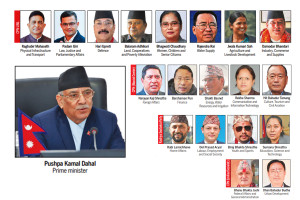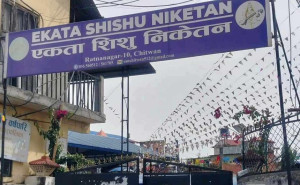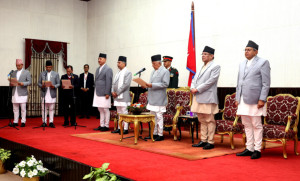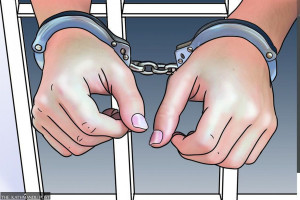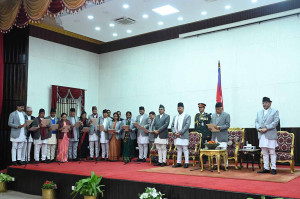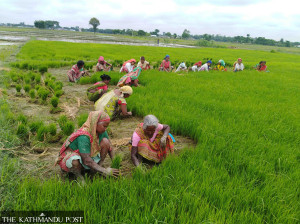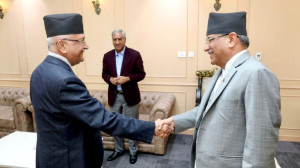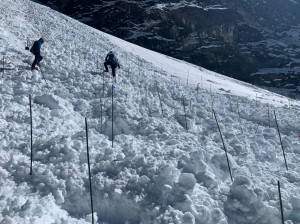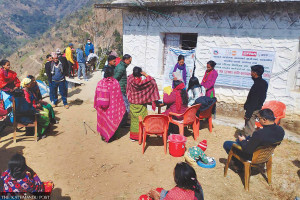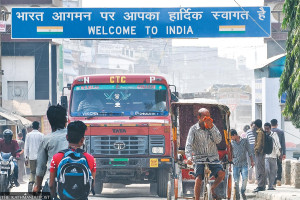 19.12°C Kathmandu
19.12°C KathmanduNational
Life sentences for 24 in 2020 murder of six Dalit youths
West Rukum District Court says Nabaraj BK and his five friends’ deaths stemmed from caste-based discrimination.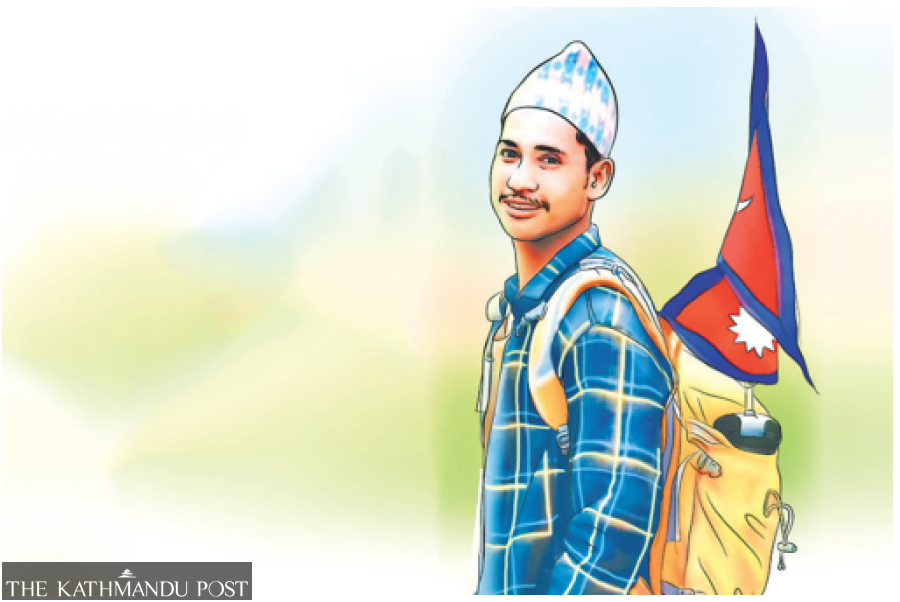
Mahesh KC
In a landmark verdict, the West Rukum District Court on Tuesday sentenced 24 individuals to life imprisonment on murder charges, and two others to two years in prison and a fine of Rs50,000 each on charges of practising caste-based discrimination and untouchability.
A single bench of Judge Khadga Bahadur KC of the district court gave the sentencing in relation to the killing of six youths in Chaurjahari Municipality of West Rukum in 2020. The bench also added two more years to the life sentences of all 24 convicts along with a fine of Rs50,000 each. The fines accumulated from the convicts will be provided to the victims’ families, according to police.
The hearing of the case started on Sunday with the final verdict issued on Tuesday.
On May 23, 2020, 21-year-old Nabaraj BK, from Bheri Municipality in Jajarkot district, along with 18 of his friends, had gone to Soti in Chaurjahari Municipality of West Rukum to bring his 17-year-old girlfriend, belonging to so-called ‘upper caste’, as his bride when the locals attacked them and chased them towards the Bheri River.
Nabaraj along with Ganesh Budha Magar, Tikaram Nepali, Lokendra Sunar, Govinda Shahi and Sandip BK were killed in the incident. Twelve survived the attack with injuries.
The bodies of Nabaraj and his friend Tikaram were found on the banks of the Bheri River the next day while the bodies of Ganesh, Lokendra and Sandip, who went missing after the incident, were recovered on May 25, 2020, whereas that of Govinda Shahi was recovered from Bheri river in Khodakhola, Jajarkot on June 2, 2020.
An investigation by a high-level parliamentary committee formed on June 8, 2020 following the incident concluded that the killings of six youths were a result of caste-based discrimination and a crime against humanity. The report submitted to then Speaker Agni Sapkota by the nine-member probe team had said that the incident was premeditated and conspired by the girl’s family.
The West Rukum District Police Office, by June 8, had arrested 28 people—20 of whom were prime suspects in the murders and eight others for additional investigation.
Reports prepared by various non-governmental investigation groups said that villagers blocked all possible escape routes, including the Bheri river, and attacked BK and his friends with domestic weapons and stones to eventually kill them.
Based on the complaint of Nabaraj’s father, Munlal Nepali, a case was filed against 34 people, including the then chairman of ward 8 of Chaurjahari Municipality, Dambar Bahadur Malla, in the incident. The Rukum District Attorney’s Office on June 14 had filed three different cases against 34 people for their alleged involvement in the killings of the Dalit youths.
The cases were filed at the district court demanding life imprisonment under homicide, attempted homicide and caste-based discrimination and untouchability charges. Among the 34 accused, as many as 11 including the girl’s mother and two minors were released on different dates by the Surkhet High Court and the Supreme Court while 23 accused individuals were remanded to custody.
Legal experts term the decision as historic saying this is the first murder case where so many people have been convicted with a life term. “There were several attempts at manipulation. However, the court has reinforced that the judiciary always stands in favour of justice,” senior advocate Dinesh Tripathi, told the Post. “The district court has passed a mature decision in the heinous crime triggered by caste-based discrimination.”
Dalit rights advocates welcomed the decision saying the judgment will be long remembered by people of marginalised communities. “The judgment has given hope to the entire marginalised community that at least the judiciary stands in their favour,” Maheshwar Jung Gahatraj, a former minister, told the Post. “It also has been established that a parliamentary report by our team was correct.”
An investigation by a parliamentary committee in July 2020 had concluded that the killings were a result of caste-based discrimination prevalent in society and a crime against humanity. The incident was premeditated and conspired by a 17-year-old girl’s family, which was unhappy about their daughter having an affair with Nabaraj BK, 21, from Bheri Municipality in Jajarkot district as he belonged to a so-called lower caste, the report had said.
(Binod Ghimire contributed reporting from Kathmandu.)











